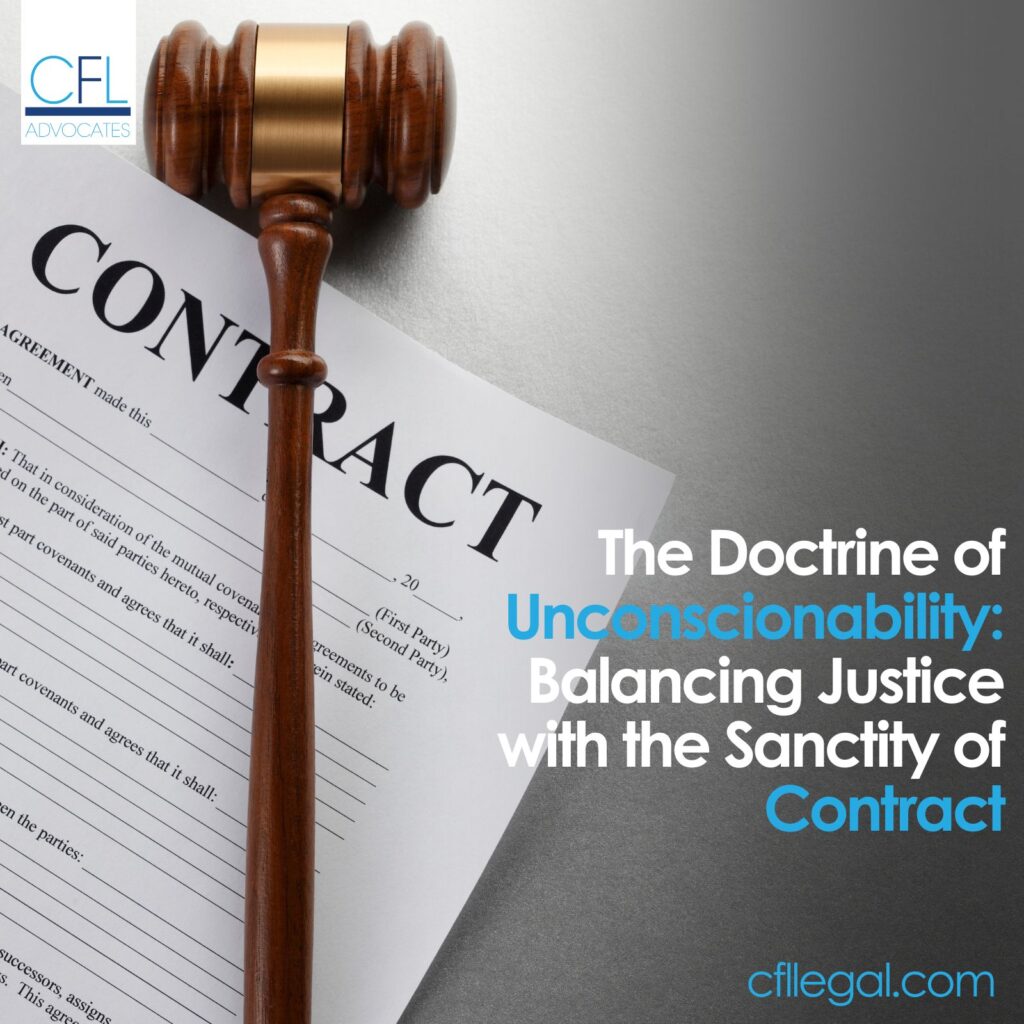
In contract law, “freedom to contract” and the principle of “pacta sunt servanda” (agreements must be kept) are sacrosanct. Courts traditionally avoid interfering with private agreements, insisting that parties are bound by the terms they freely agree upon unless those agreements are tainted by fraud, coercion, or undue influence.
In Total Kenya Ltd v Joseph Ojiem, Nairobi HCCC No. 1243 of 1999, the court stated:
“Parties to a contract that they have entered into voluntarily are bound by its terms and conditions.”
Likewise, in the case of National Bank of Kenya Ltd v Pipeplastic Samkolit (K) Ltd & Another [2002] 2 EA 503, the Court held:
“A court of law cannot rewrite a contract between parties. The parties are bound by the terms of their contract, unless coercion, fraud or undue influence are pleaded and proved…”
But what happens when a contract is legally valid on its face—yet its terms are so harsh, its enforcement so unjust, that upholding it would amount to legalizing exploitation?
This is where the doctrine of unconscionability steps in. The recent case of Dhiman v Shah (Civil Appeal E380 of 2023) [2025] KECA 1264 (KLR) reaffirms the place of this doctrine in contracts.
Facts of the case.
In Dhiman v Shah, the parties entered into an agreement where the respondent agreed to advance to the appellant a sum of Kshs. 13 million. The respondent advanced K.shs 7 million, at a staggering 36% annual interest. .
The amounts were secured by promissory notes and a title deed deposit. The appellant failed to pay the amounts lent to him by the respondent as agreed. This prompted the respondent to file a suit to recover the said amounts. He obtained an interlocutory judgment, auctioned the secured property, successfully bid for it himself, and applied for a vesting order to transfer the property into his name.
The appellant appealed and the Court of Appeal set aside the interlocutory proceedings and referred the matter to the High Court for fresh hearing. The High Court ruled in favour of the respondent, upholding the title transfer and ordering the appellant to vacate the property. The appellant appealed again.
On appeal, the Court of Appeal reversed the High Court’s judgment, holding that:
- The earlier Court of Appeal ruling had suspended the transfer of title;
- The contract was void for unconscionability; and
- The interest rate was commercially unreasonable. The increase from a principal sum of Kshs. 4 million to Kshs. 69 billion was excessively disproportionate; it exceeded the bounds of commercial fairness and, in the eyes of equity and good conscience, was both oppressive and unconscionable.
What Makes a Contract Unconscionable?
The court in Dhiman broke down unconscionability into two categories:
- Procedural unconscionability – refers to unfairness in how a contract was formed. It arises where there is a significant imbalance in bargaining power, the use of deception, pressure, or hidden terms, and where one party lacks a real or informed choice in entering the agreement.
- Substantive unconscionability– examines the actual terms of the contract and whether they are excessively harsh or one-sided. It arises where the provisions impose severe penalties, create outcomes that are commercially oppressive, or are so unfair that they will shock the conscience of the court if they are brought for adjudication.
Courts typically require both elements, though not necessarily in equal measure, to find that a contract is unconscionable.
Several other Kenyan cases echo Dhiman’s spirit:
- Nancy Muthoni Nyaruai v Grace Wanjiku Mugure [2021] eKLR – A friendly loan of Kshs. 76,000 attracted a 10% weekly interest + 20% daily penalties on default until repayment in full. The court declared the interest rates excessive thus rendering the agreement unconscionable.
- Danson Muriuki Kihara v Johnson Kabungo [2017] eKLR – A 100% monthly interest rate on a sum of K.shs 100,000 was struck down for preying on the borrower’s desperation.
- Premier Credit Limited v Sielei (Commercial Appeal E206 of 2020) [2024] KEHC 10275 (KLR) – Repayment of Kshs. 250,000 at an annual rate of 30.06% within a period of 84 months totaling to Kshs. 896,000 was ruled grossly unfair and disturbingly punitive as it was over three times the principal amount that was borrowed by the respondent.
Conclusion
While freedom to contract and the sanctity of contract are fundamental principles, courts retain inherent and equitable powers to refuse enforcement of unconscionable contracts. Where contractual terms are grossly oppressive, commercially unreasonable, or result from significant imbalance in bargaining power, courts will intervene to prevent unjust enrichment and protect vulnerable parties.
The doctrine of unconscionability thus serves as an equitable shield—ensuring that contracts do not become tools for exploitation, and that justice is not sacrificed at the altar of strict legalism.


